The History of Slavery in Louisiana Tour offers a profound examination of the state’s intricate past tied to slavery. Participants journey through significant sites, such as the Destrehan Plantation, where they confront the harsh realities faced by enslaved individuals. This experience not only reveals the economic implications of slavery but also highlights the resilience of those who endured it. As the tour unfolds, it raises important questions about the lasting impact of this history on contemporary society.
Key Points
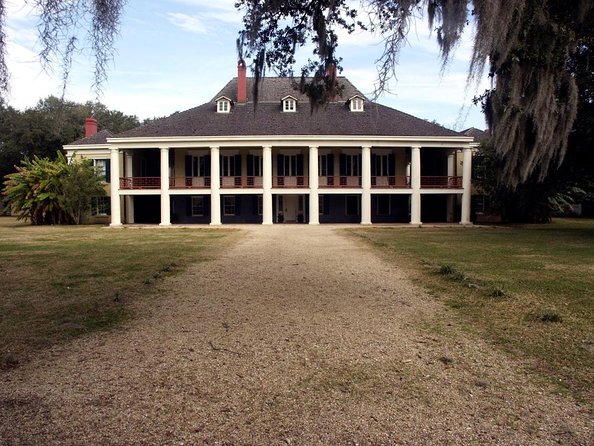
- Tours of historic plantations, like Destrehan, provide insights into the complexities and cultural significance of slavery in Louisiana.
- Visitors can learn about the economic impact of enslaved labor on cash crops like sugar and cotton.
- Engaging narratives highlight the human costs of the slave trade, emphasizing the suffering and loss of identity experienced by enslaved individuals.
- The tours often include discussions about abolitionist movements and the resistance efforts by enslaved people seeking freedom.
- Understanding the legacy of slavery helps frame ongoing conversations about race, equality, and justice in Louisiana today.
The Legacy of Slavery in Louisiana
Although the legacy of slavery in Louisiana is a painful chapter in American history, its impact continues to shape the culture, economy, and social landscape of the state.
The intertwining of African, French, Spanish, and Native American influences has forged a unique cultural identity, evident in music, cuisine, and festivals.
Economically, the foundations laid by slave labor contributed to Louisiana’s agricultural success, particularly in sugar and cotton production.
Socially, the struggles and resilience of descendants of enslaved people inspire ongoing conversations about race, equality, and justice.
This legacy remains a crucial aspect of Louisiana’s identity, reminding everyone of the enduring human spirit.
You can also read our reviews of more historical tours in New Orleans
Destrehan Plantation: A Historical Overview
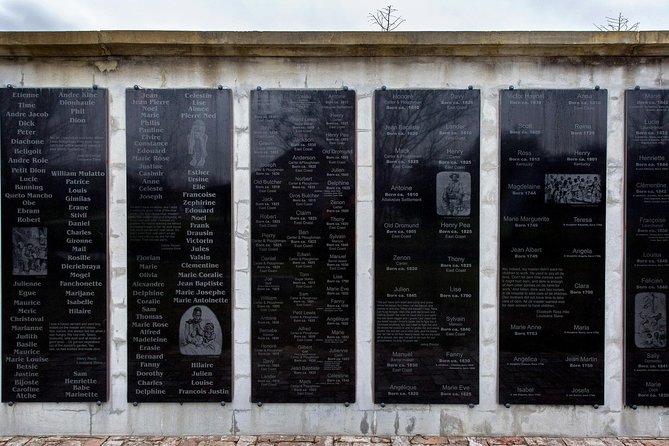
As visitors step onto the grounds of Destrehan Plantation, they’re transported back to the early 19th century, a time when the plantation played a significant role in Louisiana’s agricultural economy.
This historic site showcases:
-
Architectural Beauty: The stunning Creole-style home reflects the grandeur of the period.
-
Cultural Significance: Destrehan’s operations illustrate the complexities of plantation life.
-
Historical Preservation: The site offers insights into Louisiana’s rich and turbulent history.
Engaging tours provide a glimpse into the past, allowing guests to appreciate the intricate narratives woven into this landmark’s fabric, making it a must-visit for history enthusiasts.
Human Costs of the Slave Trade
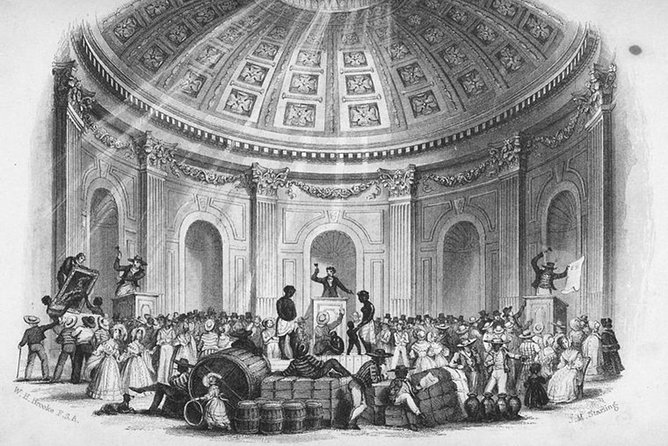
Stepping away from the architectural splendor and cultural narratives of Destrehan Plantation, visitors confront the stark reality of the human costs associated with the slave trade.
Enslaved individuals endured unimaginable suffering, stripped of their identities, families, and freedoms. They faced brutal conditions during transportation and labor, often leading to physical and emotional scars that lasted a lifetime.
Families were torn apart, with loved ones sold to distant plantations, creating a legacy of trauma that echoes through generations.
Understanding these human costs is crucial for grasping the profound impact slavery had on individuals and communities in Louisiana, marking a painful chapter in history.
Economic Impact of Slavery in Louisiana
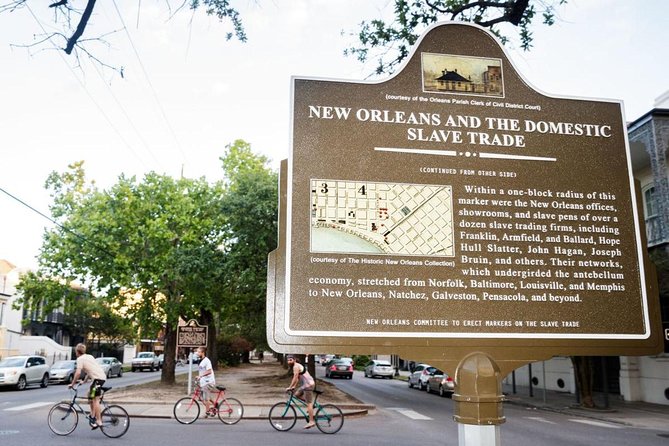
The economic impact of slavery in Louisiana was profound and far-reaching, shaping the state’s agricultural landscape and wealth dynamics.
The reliance on enslaved labor fostered an economy centered around cash crops, primarily:
- Sugar cane: Dominated the economy, driving immense wealth for plantation owners.
- Cotton: Became a staple, contributing to Louisiana’s prominence in the national market.
- Rice: Thrived in wetlands, showcasing the agricultural diversity supported by enslaved workers.
These crops not only enriched the elite but also created a complex social structure, intertwining wealth and dependency that would resonate for generations, deeply influencing Louisiana’s economic identity.
Abolitionist Movements and Resistance
Although slavery was deeply entrenched in Louisiana’s economy and society, a persistent wave of abolitionist movements and resistance emerged, challenging the status quo.
Activists, both Black and white, organized efforts to end slavery, advocating for freedom and equality. They formed alliances, held meetings, and published literature to spread their message. Notable figures, such as Frederick Douglass and local leaders, inspired many to fight against oppression.
Enslaved individuals also resisted through revolts and escape attempts, demonstrating their desire for liberation. These combined efforts laid the groundwork for social change, ultimately contributing to the broader abolitionist movement across the United States.
Tour Features and Highlights
While exploring the rich history of slavery in Louisiana, you will benefit from a private guided tour that offers personalized attention and flexibility.
This immersive experience includes:
-
Comprehensive Insights: Explore the human costs and economic impacts of slavery at Destrehan Plantation.
-
Convenient Amenities: Enjoy round-trip private transportation, lunch, and souvenirs, enhancing the overall experience.
-
Tailored Experience: The small group setting allows for discussions at each participant’s pace, ensuring a deeper understanding of the subject matter.
With a focus on engagement and education, this tour promises to be both enlightening and memorable.
Accessibility and Booking Information
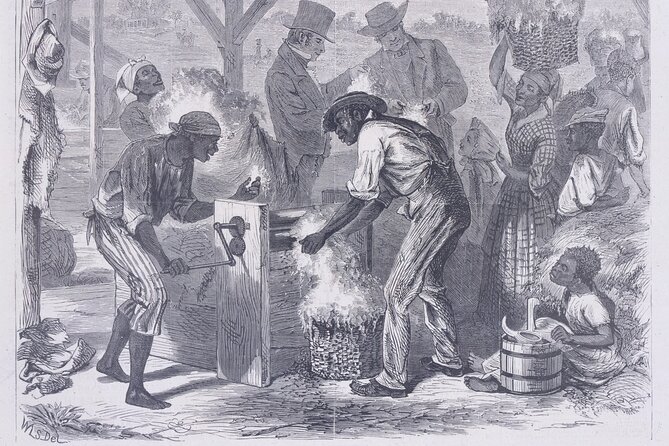
How can one ensure a smooth and enjoyable experience when booking the tour?
First, it’s essential to confirm accessibility features, as the tour accommodates wheelchairs, strollers, and service animals.
Booking online guarantees a quick confirmation, and guests can enjoy free cancellations up to 24 hours prior.
Prices start at $695 for up to four participants, with flexible payment options available.
While masks aren’t mandatory in the city, some venues may require them, so it’s wise to check beforehand.
Lastly, individuals should verify the elevator’s functionality to ensure comfort during the experience.
Planning ahead makes the journey memorable and hassle-free.
Sum Up
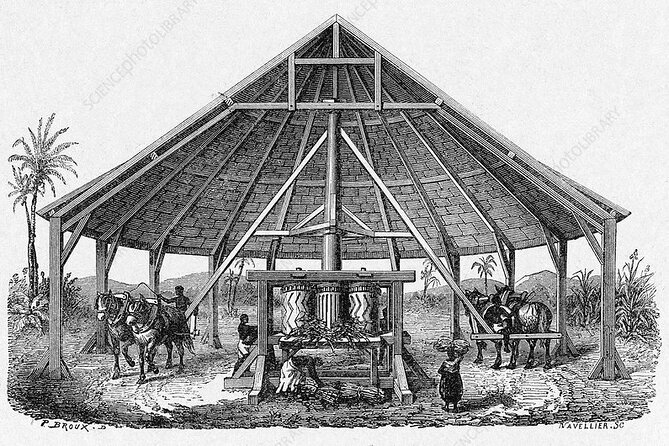
The History of Slavery in Louisiana Tour offers a vital opportunity to confront the complex legacy of slavery in the state. By visiting significant sites and engaging with powerful narratives, participants gain a deeper understanding of the human costs and economic impacts of this dark chapter. This immersive experience not only honors those who suffered but also fosters meaningful conversations about race and justice today. It’s a journey that leaves a lasting impression on all who participate.
More Historical Tours in New Orleans
More Tours in New Orleans
More Tour Reviews in New Orleans
Not for you? Here's more nearby things to do in New Orleans we have reviewed
- Historical Tour and Musical Show in New Orleans Music Venue
- Handicap New Orleans Airport or Hotel Transfer
- Mystique of the Lower French Quarter
- New Orleans Sunset City and Swamp Tour
- Eternal Echoes: A Cemetery Tour of New Orleans
- New Orleans High Crimes & Apparitions: Immersive True Crime Tour
- Crescent City Chronicles: A Family Discovery Tour
- The Faubourg Tremé Guided Tour in French
- Oak Alley Private Tours
- Haunted French Quarter Audio Tour
- Majestic Oak Alley Plantation Tour
- Hidden Gardens: An Urban Plantation Walking Tour
